Figuring out the best way to handle a weed problem in your garden can be confusing. For example, do you have a problem with crabgrass or crabgrass seeds spreading in your landscape and want to try Roundup? Is this popular herbicide effective for killing both forms of this weed?
Well, we've done extensive research into this question and have the answer below!
Yes! Roundup should be effective for killing crabgrass and crabgrass seeds if you use one of their turf lines. Since the active ingredient in Roundup herbicides is glyphosate, that will target the enzymes of your weed that help it grow and stay alive.
Furthermore, the ground near your crabgrass will also become sterile after spraying Roundup, preventing seeds from blooming.
As we start this article, we will cover all things using Roundup on crabgrass and give other helpful insight. Whether you have a weed problem, noticed your first problem plant, or need additional tips and tricks, we're here to help out. With that said, let's dive right into this topic below!
Does Roundup Kill Crabgrass?
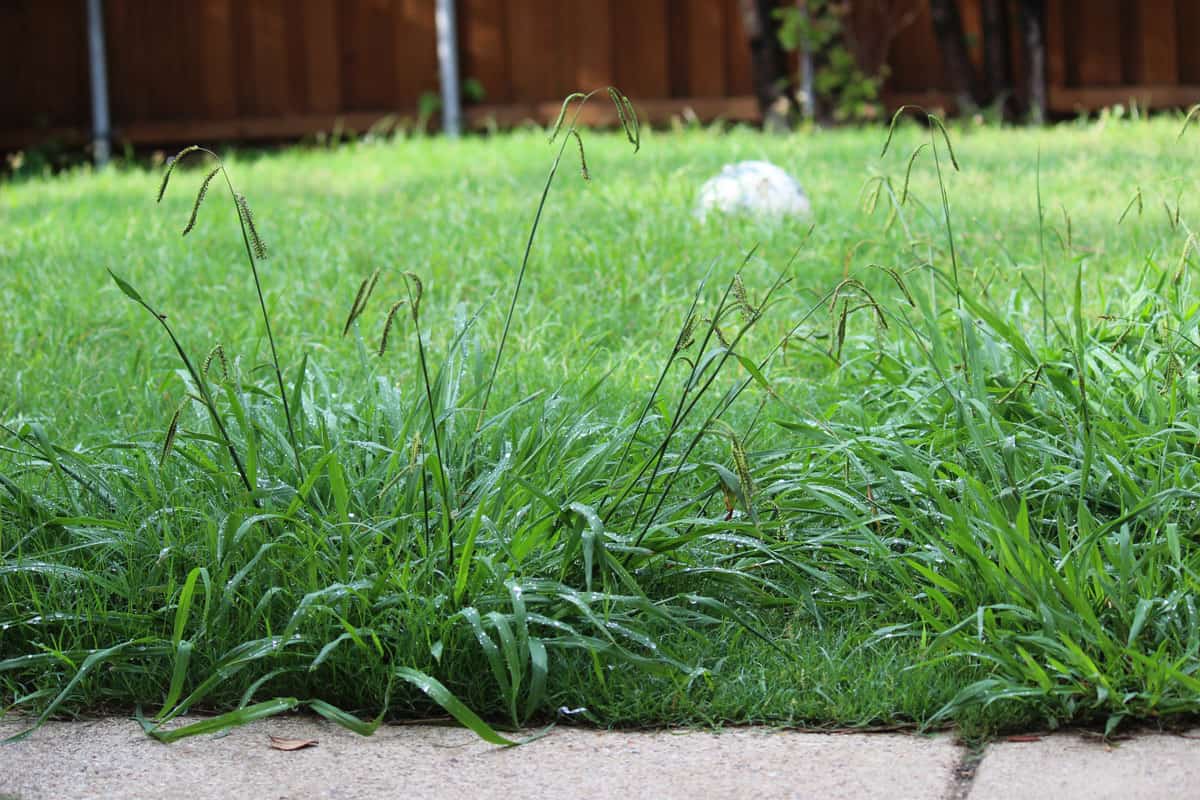
Yes, in general, using Roundup for crabgrass will prove to be very effective. Since this line of herbicides offers targeted products for the lawn, you can expect to find options for crabgrass/turf weeds.
Specifically, the active ingredients in Roundup For Lawns are MCPA, quinclorac, dicamba, and sulfentrazone: all perfect for killing crabgrass and their seeds.
Roundup is an incredibly potent product that targets anything growing in a garden. So, you should expect your herbicide to work well for crabgrass and crabgrass seeds.
The best thing to do is find a product from Roundup that mentions lawns or crabgrass and follow the directions closely. Since this weed can be persistent, you may need to reapply your Roundup several times.
According to Roundup, you can also expect their products to target and kill crabgrass weeds within about a week, so this is perfect for those wanting their weeds gone fast.
Will Roundup Target And Kill Crabgrass Seeds?
Like killing already emerged crabgrass, you can also use Roundup to prevent seeds from growing. In general, the powerful ingredients in your herbicide will cause the surrounding ground to become sterile.
This can last between two and six months. Additionally, Roundup works well at targeting the necessary enzymes in plants that keep them alive, which also applies to new seeds.
You also want to consider that your Roundup should kill anything it touches. Therefore, since the seeds of your crabgrass weeds are close by, Roundup should also successfully kill them.
Again, the glyphosate in your Roundup does most of the crabgrass killing, so the seeds will die as long as you spray it on the soil.
Don't get too crazy, however, as too much herbicide can cause other healthy plants nearby also to die.
Where Does Crabgrass Typically Grow?
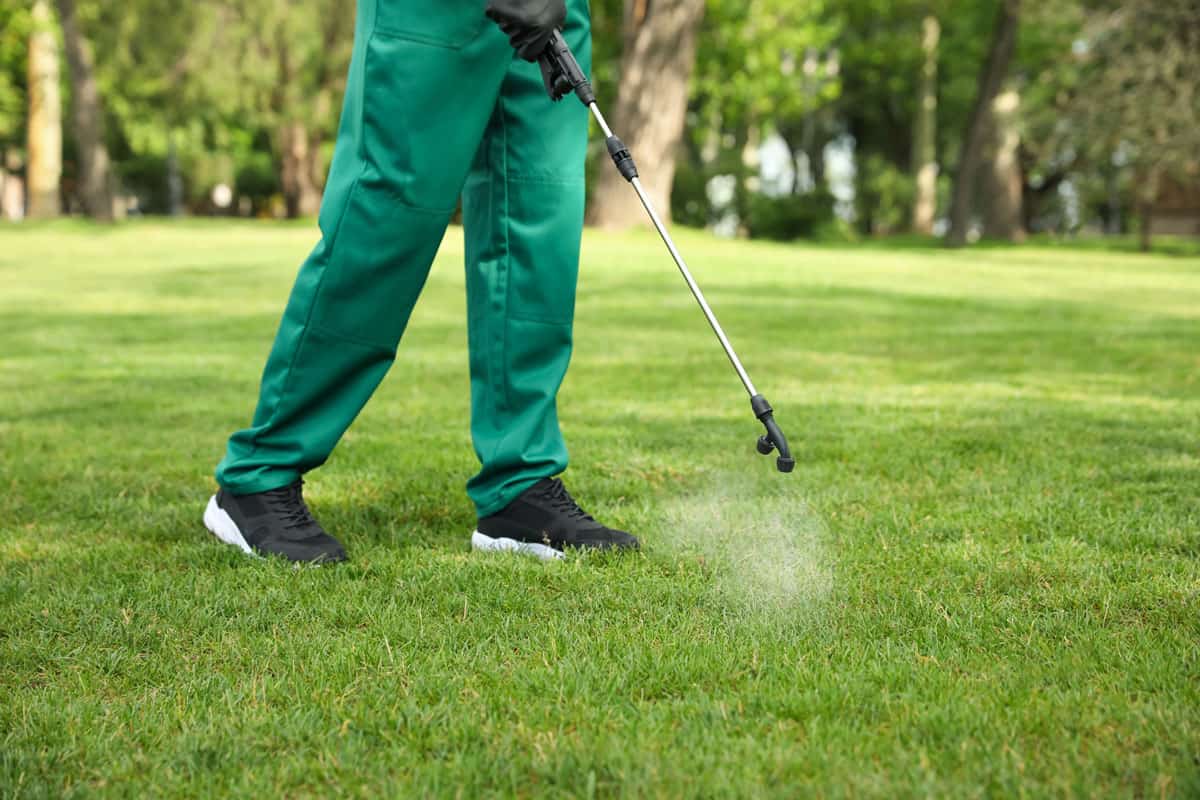
Since crabgrass is one of the more common lawn weeds, you can almost always expect to see it in the grass. Generally, this weed species will be prolific in lawns, golf courses, athletic fields, gardens, orchards, and waste places.
Specifically, if you have a section of grass growing in your garden: there's likely crabgrass there too. This can become a problem for healthy lawns, as crabgrass multiplies very quickly.
The problem with controlling crabgrass is that it thrives in almost any situation. Whether the climate is dry and hot, cold and wet, or somewhere in between, crabgrass can make your landscape its new home.
However, if you have nice weather and a bit of turfgrass growing, that's when a crabgrass invasion becomes more likely. We recommend using a broad-coverage herbicide made specifically for lawns on your crabgrass.
If you spray the wrong kind of weed killer on healthy grass, there's a chance you'll kill it. Since glyphosate doesn't discriminate, you might not want to use a heavy-duty all-purpose Roundup product on your crabgrass.
Instead, focus on Roundup's "Lawn" titled products. These won't harm your grass.
Is Crabgrass And Crabgrass Seed Hard To Kill?
Yes. Once crabgrass spreads through a landscape, the killing can be difficult. Like any weed, crabgrass thrives when you let it have space and soil nutrients.
Not realizing your garden has a weed problem before it's too late is very easy with crabgrass. Since this is mainly a lawn weed variety, you might not notice it at first.
If you let this weed continue to sprawl for weeks or months, it can become nearly impossible to eradicate. Therefore, you want to invest in a lawn-focused herbicide like Roundup.
On top of the above-ground crabgrass, you may also start having to deal with the seeds. Like regular grass, your crabgrass also reproduces underground, forming new blades.
Luckily, the active ingredients in Roundup should also target the soil, keeping crabgrass seeds from growing into full-blown plants.
Roundup For Lawns Crabgrass Destroyer1
This herbicide works specifically on crabgrass and won't harm your lawn if used correctly; designed for use on Northern lawns: Kentucky bluegrass, fine fescue, perennial ryegrass, and tall fescue, turns weeds white within a week and includes an applicator wand.
Follow this link to view it on Amazon.
How Long Does It Take For Roundup To Kill Crabgrass?
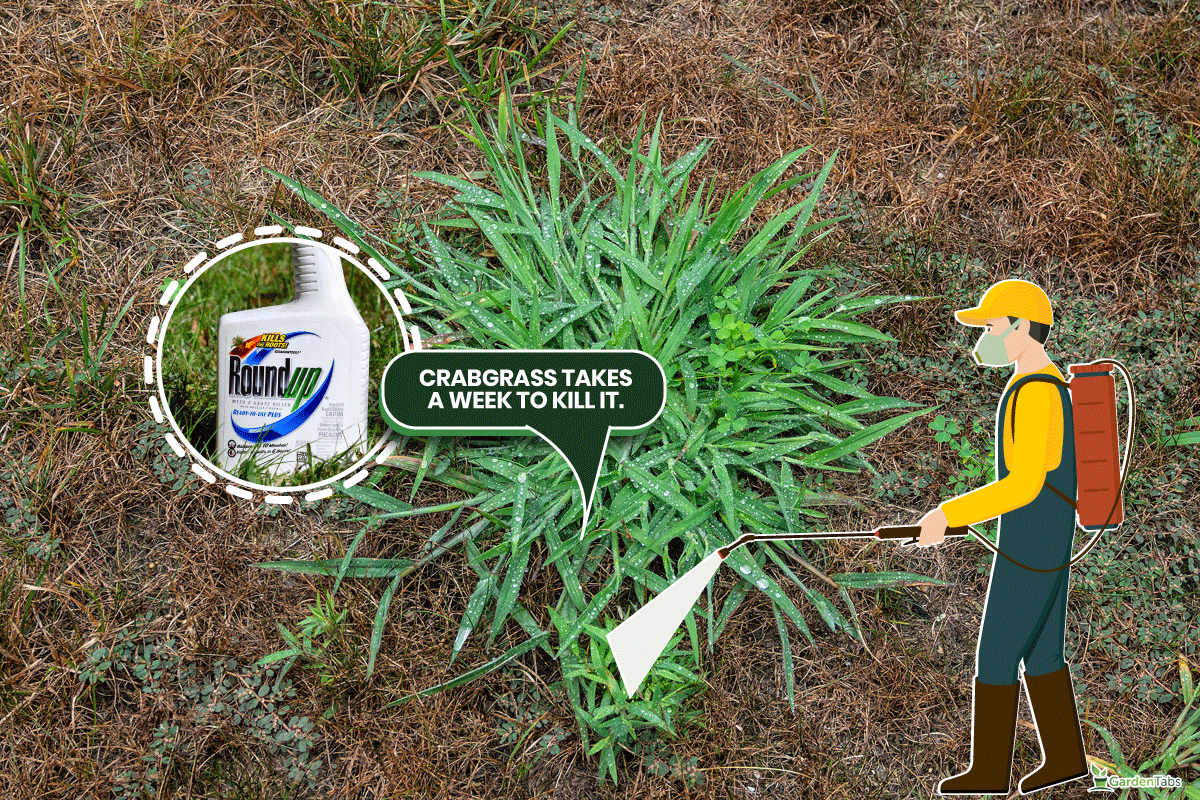
You can typically expect Roundup to start killing crabgrass within a few days of application. However, total kill time can take a week or so.
As we shared above, some Roundup products will turn crabgrass white as it kills them, making it easier to point out where each problem plant is.
When you see white patches on your lawn, the product is working! Roundup tends to immediately get to work once you apply it, making it one of the faster weed killers on the market.
Therefore, you won't have to wait weeks to see results. For more severe crabgrass, you might need to apply herbicide a few times, which will be different for each garden.
Generally, the more weeds and weed seeding you have, the more product you'll need to apply.
What Happens If Roundup Doesn't Kill My Crabgrass?
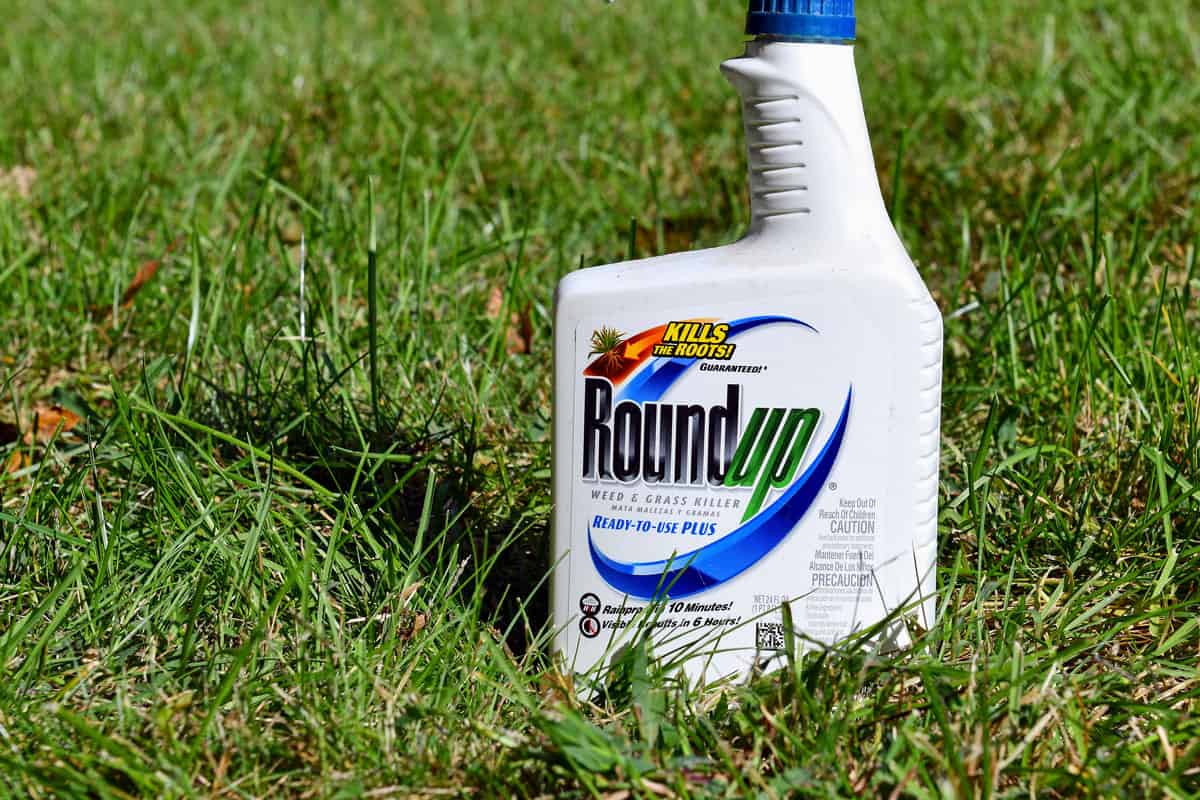
One of the main reasons your Roundup didn't kill the crabgrass in your yard is that you didn't apply it correctly. As we covered, Roundup is particular, meaning you must explicitly follow the directions.
Failing to abide by the rules on your container will mean a less effective kill. Since crabgrass is already a tough weed to tackle, not using your Roundup as required can be a big waste of time.
That said, try and use Roundup with the applicator wand it comes with (or purchase one separately) to ensure your crabgrass dies.
On the other hand, you don't want to necessarily drench your lawn in chemicals, as this may negatively affect healthy grass and weeds.
Roundup is very potent, meaning a little goes a long way. However, you still need an even, correct application to see it work.
Will Crabgrass Come Back Every Year?
Yes and no. Technically, crabgrass is a warm-season annual that germinates, lives, and then dies all within the same year. However, crabgrass also leaves behind a ridiculous amount of seeds for next spring, which is how the vicious cycle begins.
According to Pennington Seed, your crabgrass could leave behind as many as 150,000 seeds beneath the ground's surface. Of course, these won't all come to fruition, but some weeds will certainly sprout once the soil warms up in the springtime.
Therefore, you need to use a strong, fast-acting herbicide to prevent this from happening. The nice thing about Roundup is that it penetrates deep into the soil, keeping crabgrass seeds from sprouting.
That can also become an issue, though. For example, if you target crabgrass that grows outside the grass but near other healthy plants, you could harm them with too much herbicide nearby.
The ground will become sterile from the glyphosate/chemicals in Roundup, making it nearly impossible for anything else to grow: weed or not.
So, even though Roundup is excellent for crabgrass, try and keep your spraying precise.
Does Crabgrass Come Back If You Pull It?
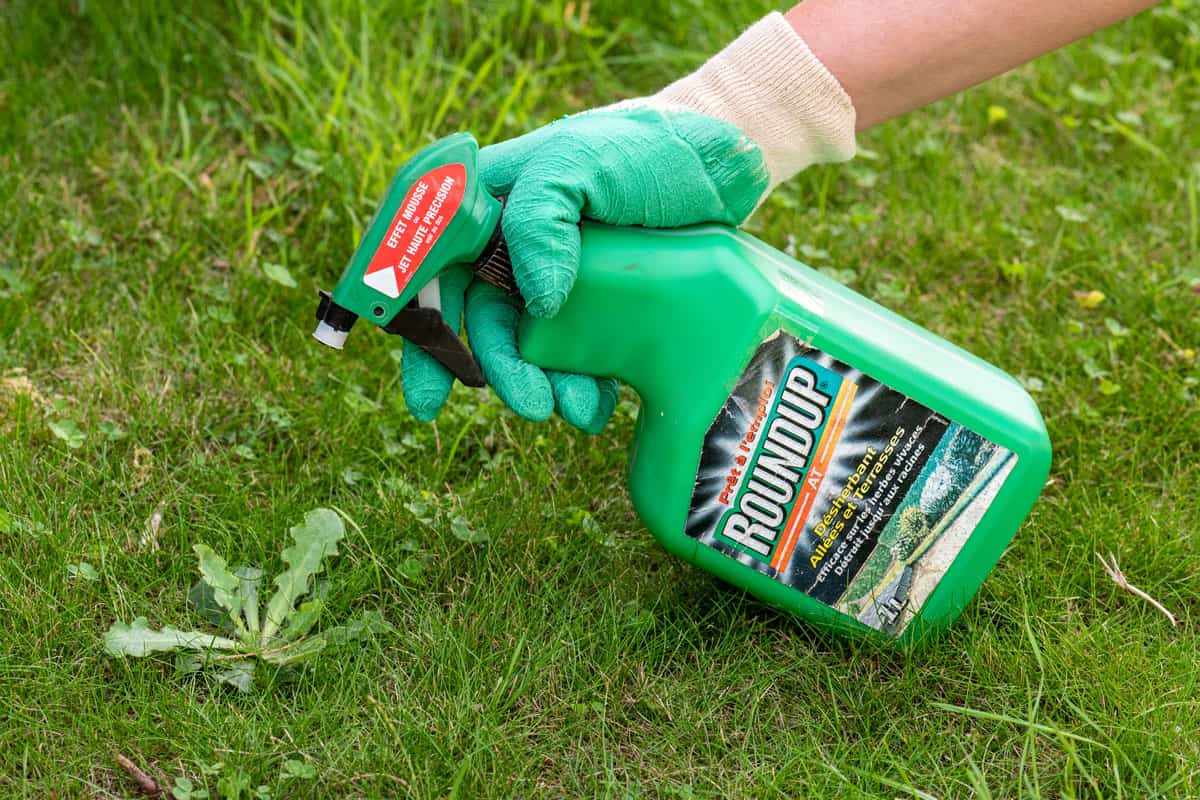
If you don't pull your crabgrass weeds before they disperse their seeds, then they will return next year. Remember, although this species is annual, it leaves thousands of eager seedlings behind.
Therefore, even after pulling the crabgrass, you can have it come back next spring. That's because the seeds have already made their way into the soil.
You want to try and target crabgrass the second you see it. If you can pull or kill it early with Roundup, the chances of a large-scale infestation become far less.
On the other hand, if you wait until the summer or fall to pull your crabgrass, that's when it'll still likely come back with a vengeance the following year.
Weeds are hard to predict, so gardeners fear the day they see one. The best course of action here is using your Roundup in the early spring and pulling any remaining crabgrass, you see before they're able to reseed.
To Wrap It All Up
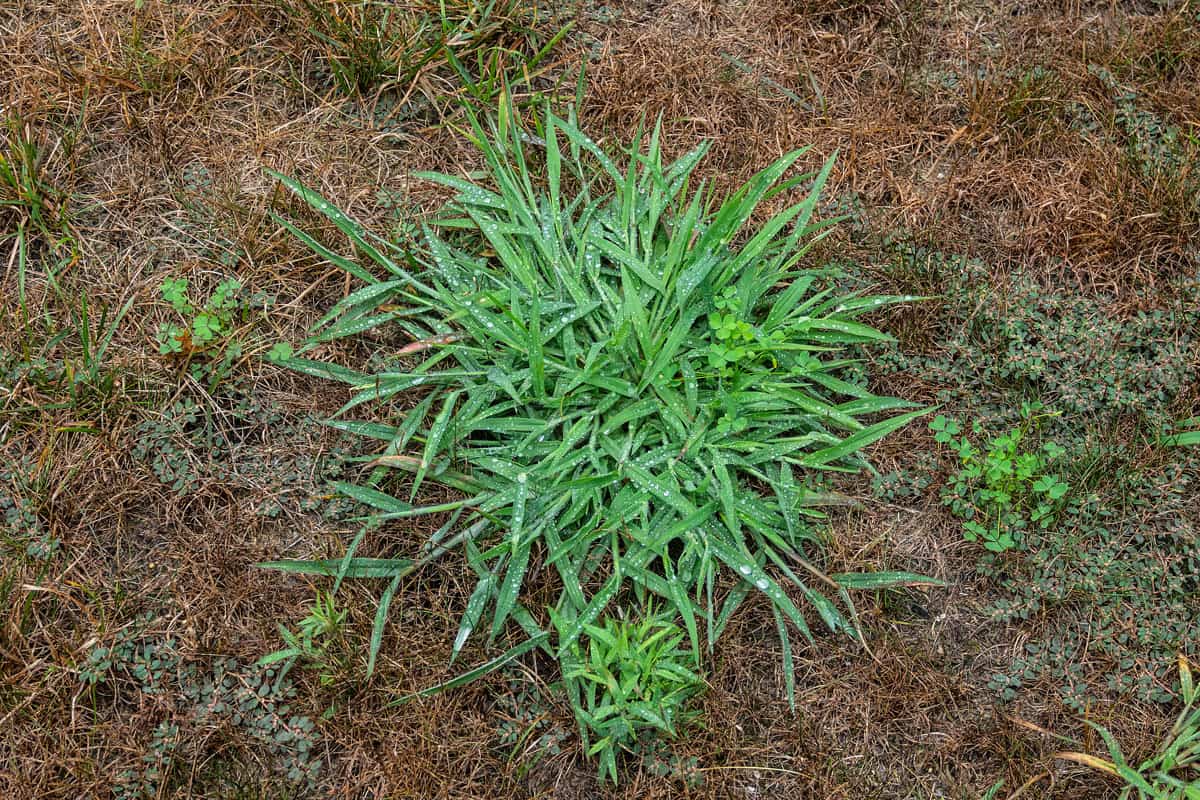
Whether you struggle with crabgrass every spring or just realized it was in your garden; it's crucial to find the right herbicide to kill it. We found that you can use Roundup to kill crabgrass and crabgrass seeds if you follow the instructions.
Generally, Roundup has active ingredients that target crabgrass and its seeds, turning them white before killing them entirely. This can help you locate the weeds easier and pull them if necessary.
We recommend acting quickly when you see crabgrass, as it sprawls quickly and can be hard to manage. It's always better to be safe than sorry!
Made it to the end? Check out these helpful related garden posts below:
Does Roundup Kill Thistle? [Inc. Canadian, Russian, Scotch, & Milk]

